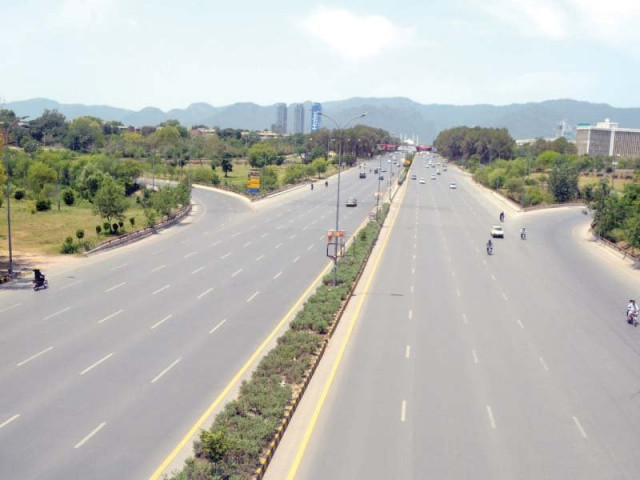Heatstroke advisory: People told to stay indoors as mercury rises
Warning signs include fever, headaches and nausea

The busiest throughfare in the capital wears a deserted look on a hot and sultry afternoon. PHOTO.EXPRESS /WASEEM NAZIR
Health experts have stated that children, elderly people and those fasting should wear lights clothes, avoid going out unnecessarily and cover their heads with a damp cloth in case of excessive heat.
In an advisory issued by the Pakistan Institute of Medical Sciences (Pims) Dr Waseem Khawaja urged the public to rush to the hospital when they were feeling feverish or nauseas or even getting a headache.
He further added that heat stroke is the most serious heat-related illness. It occurs when the body becomes unable to control its temperature. As the body’s temperature rises rapidly, the sweating mechanism fails, and the body is unable to cool down. He said body temperature may rise to 106°F or higher within 10 to 15 minutes and heat strokes need to be taken seriously as they can consequently lead to death or even permanent disability if emergency treatment is not provided
Dr Sharif Astori of Federal Government Services Hospital said the hospital has prepared a separate room for the heatstroke patients. Laborers who work under the sun frequently suffer from heat strokes. The hospital received two patients of heatstroke this season both of whom were discharged after recovery.
Moreover it was stated that anyone who suffers from the stroke should be brought under the shade and a cooling place and be given juices or ORS if conscious, he said. Damp strips should be put on the head and ice packs should be applied on other parts of the body especially armpits, groin, neck, and back. Such measures should be immediately taken if there is no health facility nearby in the vicinity.
Furthermore he added that patients who do not eat fresh food or eat excessively in the limited time between iftar and sehri are at risk of suffering from food poisoning. In order to avoid this people should drink plenty of water and avoid overeating and refrigerator stored food.
Published in The Express Tribune, May 27th, 2018.



















COMMENTS
Comments are moderated and generally will be posted if they are on-topic and not abusive.
For more information, please see our Comments FAQ